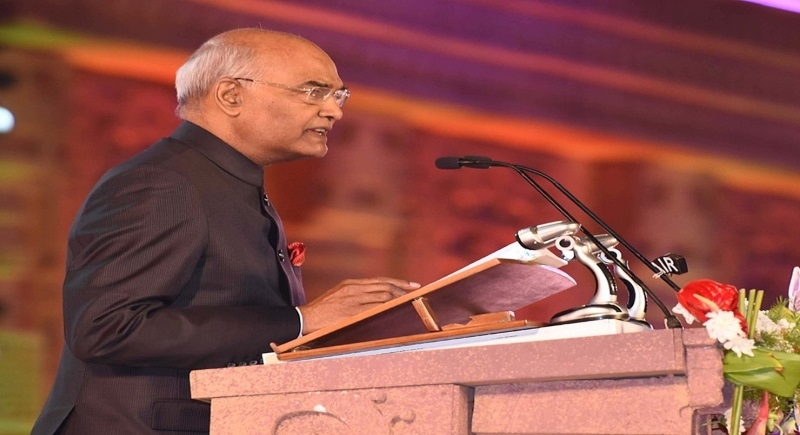Adoption of new modern methods by farmers, President Kovind Lauds Haryana farmers’ for efforts to limit air pollution

Kovind appreciated that farmers in Haryana, with the help from the state government, were adopting new methods to manage stubble and crop residue.
Stubble burning by farmers in many states has been one of the major causes for air pollution for years, prompting the governments to ban the practice and encourage the growers to adopt alternative ways to manage crop residue.
While addressing, he also paid homage to the martyrs of Pulwama Attack. He said, “Three days ago, some of our brave jawans lost their lives in a terrorist attack in Jammu and Kashmir. Along with every Indian, I condemn this heinous crime. The entire country is in mourning with the bereaved families. On behalf of the country, I express gratitude towards our brave soldiers and security personnel”.
He stated that the people and the government of Haryana were making efforts for the overall development of the state, including in enhancing ease of doing business and improving social indicators such as the child sex ratio. Adoption of modern, 21st-century technologies in agriculture was part of this process. Farmers would benefit from such collaborations.
On this occasion, the President encouraged for locating farming in a wider entrepreneurial context and linking traditional farming to the agricultural value chain.
He expressed that, farmers would help find a solution to the problem of pollution emanating from stubble burning. Every year, Punjab and Haryana are blamed for rising air pollution and smog caused by crop residue burning by growers.
The two states annually generate 220 lakh tonne and 65 lakh tonne of paddy stubble, respectively. Farmers find stubble burning as an easy option as a way of its disposal in the wake of the limited time available for next crop sowing.